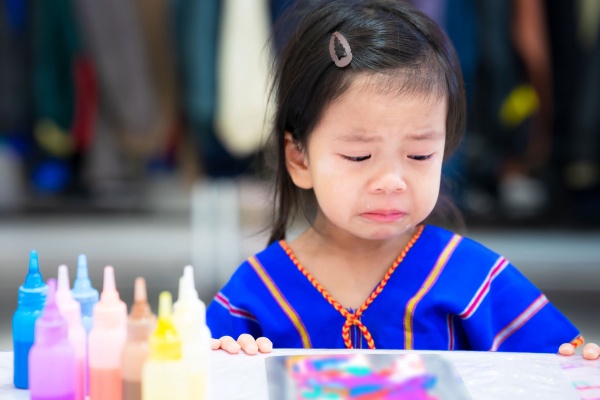
Daycare: 10 Questions You Must Ask
One of the most stressful decisions for any working parent is choosing the best daycare for our little bundles of joy.  That’s not surprising – we leave our precious children with these individuals for 8 hours a day. Not to mention, daycare can easily eat up a giant chunk of our salaries. It’s no wonder that finding quality child care at an affordable cost leaves many of us wringing our hands.
That’s not surprising – we leave our precious children with these individuals for 8 hours a day. Not to mention, daycare can easily eat up a giant chunk of our salaries. It’s no wonder that finding quality child care at an affordable cost leaves many of us wringing our hands.
A main reason for the stress is that we don’t really know which questions we ask. We think we do. We have our list ready to go, get the answers we think we want, and then are shocked a few months later when we learn about a mass employee turnover at the center or find out our kids have been ingesting sugared fruit punch all day.
“We spend more time shopping for a car than shopping for child care,” said Stephen Zwolak, executive director of the University City Children’s Center. “We need to allow parents the opportunity to test drive their schools.”
To narrow down 10 questions every parent should ask on their “test drive,” I asked both Zwolak and Dr. L. Carol Scott, executive director of the Missouri Child Care Resource Referral Network (MOCCRRN), for opinions on appropriate questions and threw in a couple of my own.
Dr. Scott’s examples (via email):
- What is the training and education of the child care program staff? “Have they been trained in first aid and CPR? Child care staff who have learned about child development and early education are better able to help your child be ready for school.”
- Can I see your license? “If a child care program is required to be licensed by the state (not all are) you should see its license posted and clearly visible. You may want to read licensing files on prospective programs, as they are public information and can provide evidence of the program’s compliance with health and safety standards.”
- Do you have an open door policy? “Child care programs should encourage parents to visit their child’s program at any time, without notice, and should also offer opportunities for parents to get involved.”
- May I have written guidelines on your program and your discipline policy? “Knowing in advance what the staff’s expectations are for your child and how your child will be disciplined will create open communication from the start.”
Zwolak’s examples:
- How is your discipline policy put into practice? “When a center says, ‘Our discipline policy is…’, a parent needs to say, ‘Well, wait a minute tell me about the implementation of that policy. How is it modified for toddlers? Is there a teacher willing to talk to me about that?’ It’s important that a parent watch a teacher in a classroom first since many teachers will discipline the way they were taught themselves – not necessarily in line with the school’s philosophy. The practice must match the verbiage.”
- What is your school’s nutritional philosophy? Zwolak noted there are a variety of issues related to this topic, including learning how the school accommodates special eating needs, how it meets a baby’s eating schedule, and if its guidelines mirror those of the federal food program. “You want to know what your school will do if your child chooses to eat a whole plate of pickles and nothing else. In other words, how do the teachers guide children through food choices?”
- What curriculum do you practice? “You want to know how the curriculum they use helps the teachers understand your child more. It’s my personal bias that the curriculum needs to contribute to a child’s emotional development, the absolute pinnacle for academic success. There are a few emotional development milestones the child should develop through the curriculum – his ability to attach to others, his ability to work independently and his ability to self-regulate.”
My examples:
- What is your turnover rate? If the turnover rate is high, it’s likely the daycare won’t be too honest about the numbers. But in talking with the teachers, you can quickly learn how long they’ve been at that particular center – a key indicator of their happiness with the organization. Happy teachers = happy kids.
- What is your religious philosophy? Obviously, this isn’t relevant to every center you might be looking at, but if you’re considering a religious-based school, it’s important that you be comfortable with its guidelines. Our school, even though its denomination is different than ours, maintains an excellent balance between religion and secular education. However, a friend of mine removed her child from her daycare after realizing religion was brought into every aspect of the curriculum and felt her child was ostracized since they didn’t attend the sponsoring church.
- What is your vacation policy? Some daycare centers will give families one week off without tuition per year. Others may wave holidays. But the majority will charge you whether your child is attending school that day or not. It’s important to be aware of this factor to budget accordingly and prevent any confusion moving forward.
No matter if it’s your child’s first week at daycare or his third year, it’s essential to keep the dialogue going between yourself and your childcare provider. These men and women you entrust want the best for your children, and maintaining a relationship built on mutual respect will go a long way in the emotional health and well-being of your child.
By Nicole Plegge, Lifestyle Blogger for SmartParenting

Metro East mom Nicole Plegge has written for STL Parent for more than 12 years. Besides working as a freelance writer & public relations specialist, and raising two daughters and a husband, Nicole's greatest achievements are finding her misplaced car keys each day and managing to leave the house in a stain-free shirt. Her biggest regret is never being accepted to the Eastland School for Girls. Follow Nicole on Twitter @STLWriterinIL



















